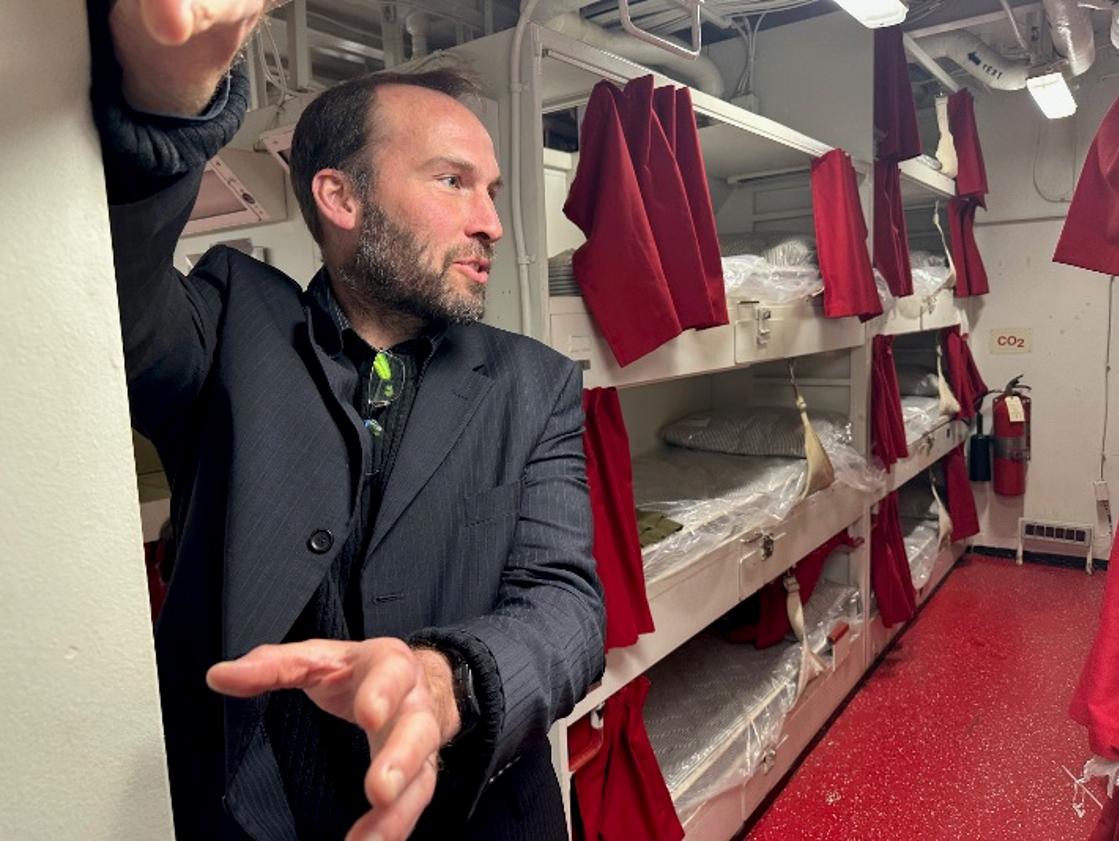
Dr Arnaud Rabat (FRA) discusses berthing specifications for restorative sleep aboard the USS Boxer.
An STO Research Task Group formed under the Human Factors and Medicine (HFM) Panel is exploring technologies capable of detecting mental fatigue in the field, as well as the effects of such fatigue on team performance and neurobiology. The team’s findings could contribute to enhancing the mental endurance of warfighters, thereby improving performance and lethality.
The team (HFM-RTG-331) met this month to review their progress and consider specific research gaps. They participated in a mini symposium on fatigue mechanisms at the Army Institute of Creative Biotechnologies, University of California, Santa Barbara, alongside experts from the Army Research Laboratory (ARL-West). This meeting overlapped with the annual meeting of the Social & Affective Neuroscience Society in Santa Barbara, which the team also attended. While in California, the team attended a tour of the USS Boxer, a US Navy amphibious assault, hosted by the Navy Health Research Center in San Diego. The tour provided an opportunity for discussions about shipboard fatigue monitoring and management systems research, led by Panel member Dr Rachel Markwald.
Although increased cognitive load is known to result in reduced physical ability, the psychobiological underpinnings of this interaction have not yet been determined. Recent neurobiological techniques make it possible to map military risk factors for fatigue back to common pathways that affect the brain and behaviour. A key objective for this research team is to identify which technologies can at least match the ability of an expert noncommissioned officer to detect fatigue.
A final summary of the team’s efforts and findings will be presented at the International Soldier Congress on Physical Performance (ICSPP 2023) in London in September.
For more information, please contact the HFM Panel (HFM@cso.nato.int). Published by HFM | 